
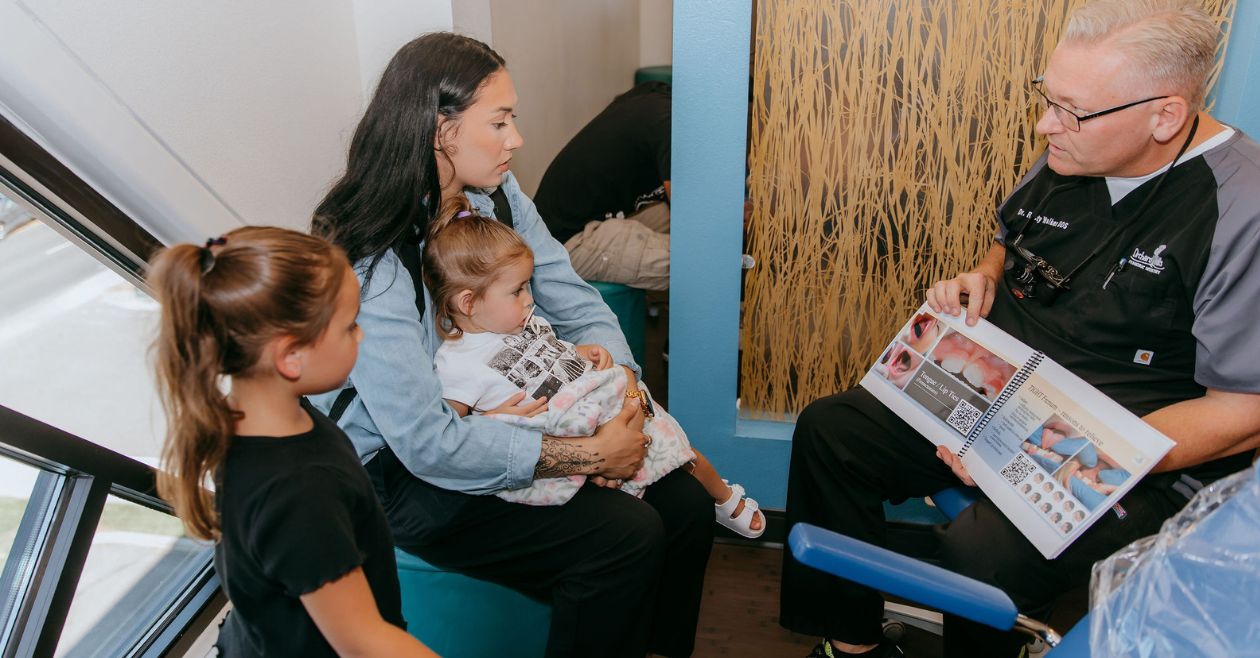
Myofunctional therapy is a highly-effect type of oral-facial muscle therapy that’s designed to improve breathing, biting, and orofacial posture. It addresses a range of Orofacial Myofunctional Disorders (OMDs) that can either directly or indirectly alter the functions and muscle movements of the mouth and face. These may result from a variety of issues, including problems associated with breastfeeding, stunted skeletal growth and development in the face, speech impediments, temporomandibular joint movement/disorders, and poor oral hygiene.
The aim of myofunctional therapy is to retrain your muscles and to achieve a normal resting posture of the tongue, lips, and jaw. It emphasizes training patients to achieve the correct resting postures while facilitating proper nasal/diaphragm breathing. Treatment benefits include not only better facial symmetry, reduced snoring and obstructive sleep apnea, and the ability to move oral muscles properly, but also clearer thinking, more balanced moods, and an increase in energy.
In children, myofunctional therapy can be used as a means for achieving a proper tongue rest position, which may be affected by habit or necessity. A low tongue position can lead to improper muscle functioning and/or airway obstruction. When nasal breathing is impaired, the jaw tends to drop and the tongue will find a low position to help open the upper airways. Lack of nasal breathing or sleep-disordered breathing may also lead to the tongue moving or resting in a forward position, pushing up against the teeth. Establishing a good resting tongue posture is important in children to ensure proper facial growth and airway development.

Orofacial myofunctional therapy can be used to assist adults who experience headaches, gastroesophageal reflux disease (GERD) or heartburn, temporomandibular joint (TMJ) pain, neck pain, thumb sucking, and nail-biting. It can be used in response to late jaw growth or tooth loss, as well as the worsening of malocclusion (tooth alignment).
Myofunctional therapy can also be used as a non-invasive and inexpensive treatment for sleep apnea for those wanting to avoid surgery or the use of continuous positive airway pressure. In most cases, myofunctional therapy for adult patients is a highly efficient and successful treatment option. Current studies show that it decreases the apnea-hypopnea index by approximately 50% in adults and 62% in children, with the lowest oxygen saturation, snoring, and sleepiness outcomes seen in adults

My passion for dentistry began at the age of 16 when I worked as a orthodontic assistant. After high school, I attended Central Washington University and later transferred to Yakima Valley Community College where I earned my Dental Hygiene degree in 2004. I practiced traditional dentistry for 14 years prior to Joining Orchard Hills Pediatric Dentistry in 2018. Restorative dental has always been a passion of mine and I find great joy in working with the kiddos and their families.
Nikki Huston RDH, BS, Certified Myofunctional Therapist
I became a Certified Myofunctional Therapist in 2020. Myofunctional therapy helps to strengthen and develop the structures of the face and tongue to guide proper growth and development. This is a treatment option I’m very excited to provide to our patients.
Tess Webster, RDH, Certified Myofunctional Therapist
Many people breathe through the mouth more than they should, leading the muscles and orofacial functions to adapt to a disordered breathing pattern that can create OMDs. Myofunctional therapy is also an important part of treatments associated with orofacial surgeries, such as frenuloplasties, as well as mandibular advancements.
Our interaction between orofacial structural growth and muscle activity starts early in our development. The physiologic functions of suction, mastication, swallowing, and nasal breathing that develop when we are infants play an important role in stimulating growth later down the track. Poor oral habits that restrict growth and development include tongue thrusting, drooling, thumb sucking, and leaning on the chin, as well as grinding/clenching the teeth, nail-biting, and pencil chewing.
By creating good habits and training the muscles in our face to act in an optimal way, our muscle memory will ensure our teeth and jaws align properly as we grow and develop. Myofunctional therapy works by training the soft tissues in the face, neck, and mouth to function at their optimum. Not only can it help you to enjoy eating, breathing, and speaking more naturally, but it can have beneficial cosmetic results and can eliminate the need for costly orthodontics in the future. By cultivating an awareness of your muscles, our therapists can develop a therapy program of regular exercises that are customized to your needs.
Our goal as therapists is to help you better understand the importance of proper tongue position and proper oral rest postures, with low tongue positions contributing to improper muscle functioning and sometimes even leading to airway obstruction. We also strive to help you better understand the importance of establishing a lip seal and practicing continuous nasal breathing. We provide a leading role in illustrating pre and post-operative myofunctional therapy exercises that will help to strengthen the tongue and orofacial muscles, helping to resolve a range of issues that may include jaw pain, breathing problems, and cervical neck tension. Therapeutic exercises can help to improve the strength and range of your jaw, cheeks, lips, and tongue, which can assist those who have trouble swallowing or speaking clearly.
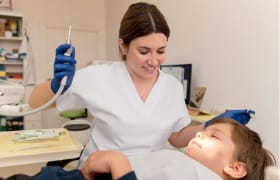
Preventive Dentistry
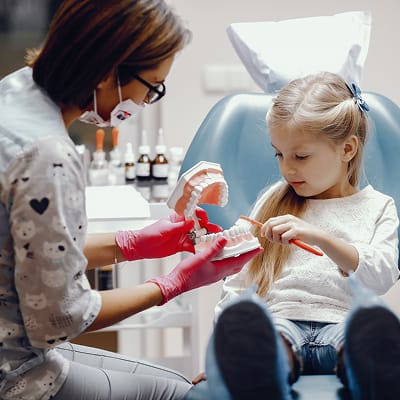
ABCD Program
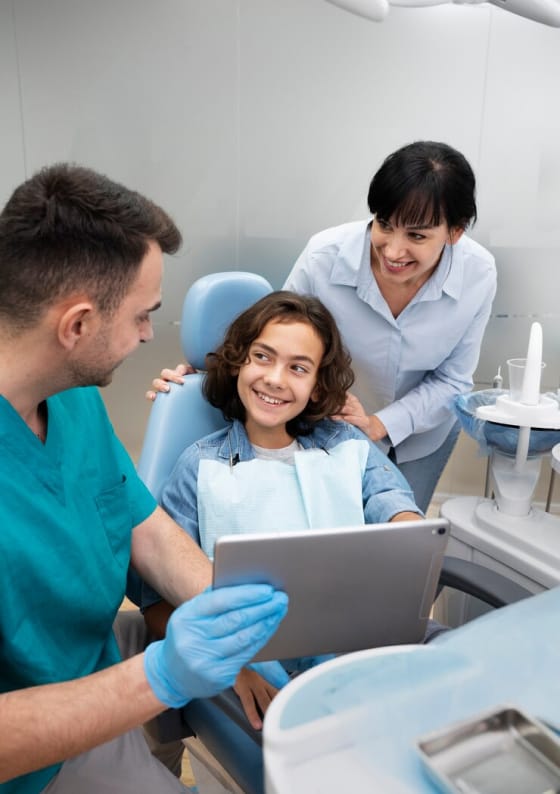
Myofunctional Therapy
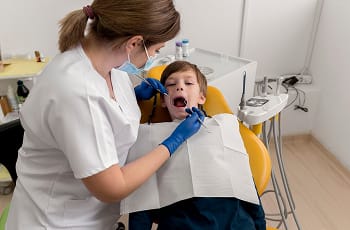
Surgery Center
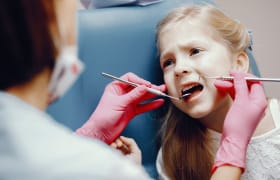
Behavior Guidance
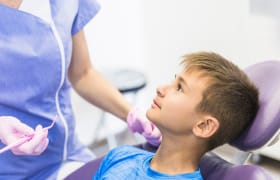
Emergency Treatment
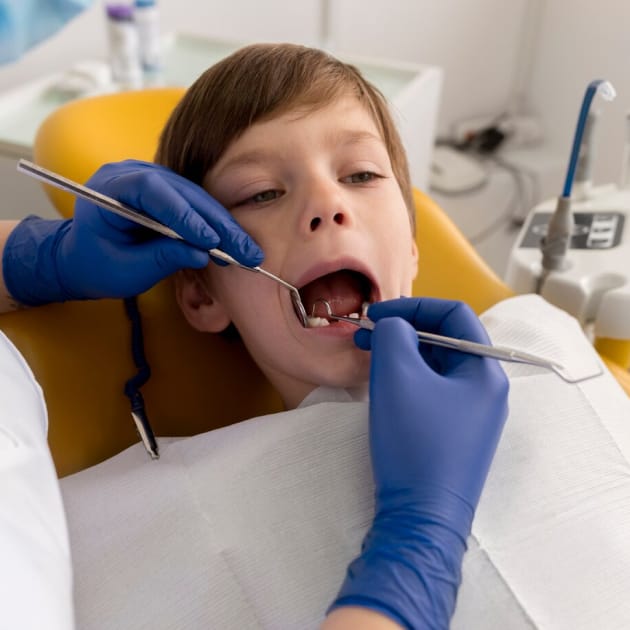
Tongue-Tie Frenectomy
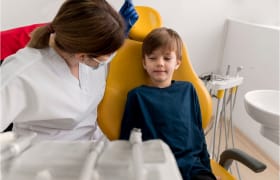
Interceptive Orthodontics

Connect with us on Facebook
Connect with us on Instagram
Monday-Friday with variable times to accommodate all of our patients. Our kids dental team is ready for you!